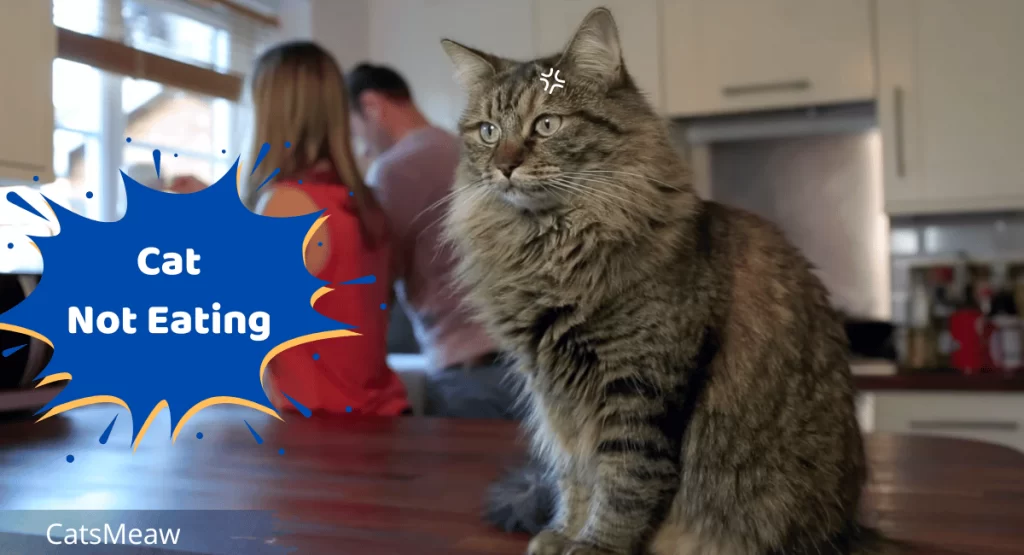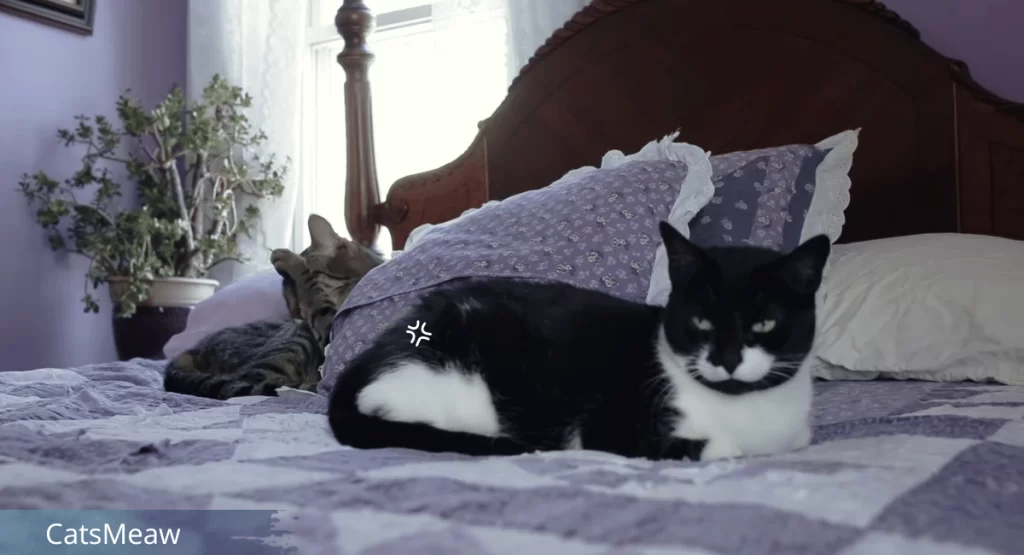Cats are known for their discerning palates and selective eating habits, making it a cause for concern when your feline friend suddenly loses interest in their food. A cat not eating can be a worrisome situation for pet owners, as it may indicate an underlying health issue or behavioral change. While the occasional skipped meal may not be alarming, prolonged periods of reduced or complete lack of appetite should prompt further investigation.

In this article, we will explore common reasons why cats may refuse to eat, ranging from medical conditions to environmental stressors. Recognizing the signs and understanding potential causes can help pet owners take appropriate action to ensure their cat’s well-being and address any issues that may be affecting their appetite. Let’s delve into the world of feline behavior and health to unravel the mystery behind a cat’s reluctance to eat.
Table of Contents
Common reasons why cats not eating
It can be a cause for concern when your beloved feline friend suddenly loses their appetite. There are several common reasons why cat not eating, and understanding these causes can help you address the issue effectively. One possible reason is a change in their environment or routine. Cats are creatures of habit, and any disruption to their usual schedule can cause stress and anxiety, leading to a loss of appetite. Another common cause is dental problems.
If your cat is experiencing dental pain, they may find it difficult or painful to chew their food, resulting in a decreased desire to eat. Other reasons include digestive issues, such as an upset stomach or gastrointestinal problems, and underlying medical conditions, such as kidney disease or diabetes in cats.
Potential health issues that can cause a cat to lose their appetite
A cat’s loss of appetite can sometimes be a symptom of an underlying health issue. It is crucial to be aware of potential health problems that can cause a cat to lose their appetite. One possible health issue is a respiratory infection. Cats with respiratory infections may have difficulty breathing, which can affect their sense of smell and taste, leading to a decreased appetite.
Our pick: The Best Cat Supplements & Vitamins
Another health concern is intestinal parasites. These parasites can cause discomfort and inflammation in the digestive system, resulting in a loss of appetite. Additionally, cats that are experiencing pain or discomfort from conditions such as arthritis or urinary tract infections may lose their appetite as a result. It is essential to monitor your cat closely and consult with a veterinarian if their lack of appetite persists or is accompanied by other concerning symptoms.
How to determine if your the lack of appetite is a cause for concern
While occasional fluctuations in appetite are normal for cats, a persistent lack of appetite can be a cause for concern. It is important to be able to determine if your cat’s lack of appetite warrants veterinary attention. One way to assess the severity of the situation is by monitoring your cat’s behavior and overall demeanor.
Related: Homemade Cat Food: Delicious and Healthy Meals
If your cat is otherwise active, playful, and displays no other concerning symptoms, it may be reasonable to try some home remedies and tips to encourage their appetite (which we will discuss later). However, if your cat appears lethargic, shows signs of pain or distress, experiences rapid weight loss, or exhibits other abnormal behavior, it is crucial to seek veterinary help promptly. These can be signs of a more serious underlying health issue that requires immediate attention.
Home remedies and tips to encourage your cat to eat
If your cat’s lack of appetite is not accompanied by any other concerning symptoms, there are several home remedies and tips you can try to encourage them to eat. One effective method is to offer highly palatable and aromatic foods, such as canned tuna or chicken. The strong smell and taste can stimulate their appetite. Additionally, warming their food slightly can enhance its aroma and make it more enticing. Another tip is to provide a quiet and stress-free environment for your cat during mealtime.
Cats can be easily stressed by loud noises or other pets, which can disrupt their eating habits. Creating a calm and peaceful environment can help them feel more relaxed and inclined to eat. It is also essential to ensure your cat has access to fresh water at all times, as dehydration can further decrease their appetite. If these home remedies do not improve your cat’s appetite within a few days, it is essential to consult with a veterinarian for further guidance.
When to seek veterinary help for a cat not eating
If your cat’s lack of appetite persists for more than two days, it is crucial to seek veterinary help. A veterinarian will be able to evaluate your cat’s overall health, perform a thorough examination, and conduct any necessary diagnostic tests to determine the underlying cause of their appetite loss.
They may also ask you questions about your cat’s eating habits, behavior, and any other symptoms they may be experiencing. In some cases, additional interventions, such as bloodwork or imaging, may be necessary to provide a more accurate diagnosis. Remember, early intervention can prevent further complications and ensure your cat receives the appropriate treatment for their specific condition.
Medical treatments and interventions for cats with appetite loss
Depending on the underlying cause of your cat’s appetite loss, there are various medical treatments and interventions that a veterinarian may recommend. For example, if dental problems are the culprit, your cat may require a dental cleaning or extractions to alleviate any pain or discomfort. In cases where gastrointestinal issues are present, medications or dietary changes may be prescribed to address the specific problem.
If an underlying medical condition is identified, such as diabetes or even kidney disease, your veterinarian will develop a treatment plan that may include medications, special diets, or other interventions to manage the condition and improve your cat’s appetite. It is crucial to follow your veterinarian’s recommendations and attend any necessary follow-up appointments to ensure your cat’s recovery.
Proper nutrition for cats to prevent appetite issues
Proper nutrition plays a vital role in preventing appetite issues in cats. Providing a balanced and nutritious diet is essential for their overall well-being. Cats are obligate carnivores, which means their diet should primarily consist of animal-based protein. Commercial cat foods formulated to meet their nutritional needs are readily available and convenient to feed. It is important to choose high-quality cat food that is appropriate for your cat’s life stage and specific health needs.

Additionally, incorporating wet food into their diet can help ensure they receive adequate hydration, as cats have a low thirst drive. However, it is essential to avoid overfeeding and monitor their weight to prevent obesity, which can also lead to appetite issues. If you have any concerns or questions regarding your cat’s diet, consult with a veterinarian or a feline nutritionist for tailored advice.
How to monitor your cat’s eating habits and overall health
Regularly monitoring your cat’s eating habits and overall health is essential for early detection of any potential issues. Keep an eye on their appetite and food intake, noting any changes or fluctuations. Maintaining a food diary can be helpful in tracking their eating patterns. Additionally, observe their behavior, energy levels, and litter box habits.
Related: Most Dangerous foods for cats
Any sudden changes in these areas can indicate an underlying problem. Regular veterinary check-ups are also crucial in monitoring your cat’s health. Through routine examinations, your veterinarian can identify any subtle changes or early signs of disease that may affect your cat’s appetite. By actively monitoring your cat’s eating habits and overall health, you can address any concerns promptly and ensure their well-being.
Preventive measures to keep your cat’s appetite strong
There are several preventive measures you can take to help keep your cat’s appetite strong. Firstly, maintain a consistent feeding schedule and routine to minimize stress and anxiety. Cats thrive on predictability, and any disruptions to their routine can affect their appetite. Additionally, provide a clean and quiet feeding area free from distractions. Cats prefer a calm environment for their meals, away from noise and other pets.
Regular exercise and mental stimulation are also important to keep your cat physically and mentally healthy. Engage in play sessions and provide toys that promote both physical activity and mental engagement. Lastly, ensure your cat’s environment is enriched with scratching posts, hiding spots, and vertical spaces to fulfill their natural instincts and reduce stress. A stress-free and enriched environment can contribute to a strong and healthy appetite.
The importance of addressing a cat not eating promptly
In conclusion, a cat not eating can indicate underlying issues that require prompt attention. Understanding the common reasons why cats stop eating and being aware of potential health problems can help you determine if your cat’s lack of appetite is a cause for concern. Home remedies and tips can be effective in encouraging your cat to eat, but if their appetite loss persists or is accompanied by other concerning symptoms, it is crucial to seek veterinary help.
Medical treatments and interventions may be necessary to address the underlying cause and improve your cat’s appetite. Proper nutrition, regular monitoring of their eating habits and overall health, and preventive measures can help ensure your cat maintains a strong appetite and enjoys a healthy life. Remember, your cat’s well-being is in your hands, so act promptly and seek professional advice when needed.
